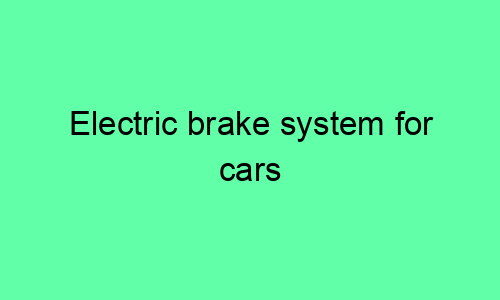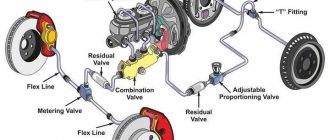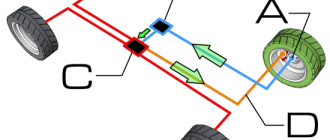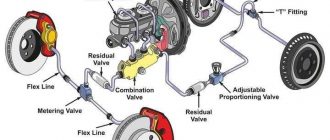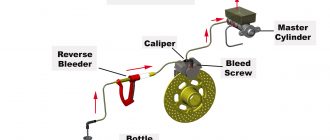Electric Brake System for Cars
Introduction
An electric brake system (EBS) is a braking system that uses electric motors to apply braking force to the wheels of a vehicle. EBSs are becoming increasingly popular in cars, as they offer a number of advantages over traditional hydraulic brake systems.
Advantages of EBSs
- Reduced stopping distances: EBSs can provide shorter stopping distances than hydraulic brake systems, as they are able to apply braking force more quickly and evenly.
- Improved stability: EBSs can help to improve vehicle stability during braking, as they are able to apply braking force to individual wheels independently.
- Reduced weight: EBSs are lighter than hydraulic brake systems, as they do not require heavy brake lines or calipers.
- Reduced maintenance: EBSs require less maintenance than hydraulic brake systems, as they do not have any moving parts that can wear out.
Disadvantages of EBSs
- Cost: EBSs are more expensive than hydraulic brake systems.
- Reliability: EBSs are more complex than hydraulic brake systems, and there is a greater potential for them to fail.
- Availability: EBSs are not yet as widely available as hydraulic brake systems.
How EBSs Work
EBSs work by using electric motors to apply braking force to the wheels of a vehicle. The electric motors are controlled by a computer, which monitors the vehicle’s speed and the driver’s input. When the driver applies the brake pedal, the computer sends a signal to the electric motors, which then apply braking force to the wheels.
EBSs can be used in conjunction with traditional hydraulic brake systems. In this type of system, the electric motors are used to provide additional braking force, while the hydraulic brake system provides the primary braking force.
The Future of EBSs
EBSs are still a relatively new technology, but they are rapidly becoming more popular. As the cost of EBSs comes down and their reliability improves, they are likely to become the standard braking system for cars.
EBSs offer a number of advantages over traditional hydraulic brake systems, including shorter stopping distances, improved stability, reduced weight, and reduced maintenance. As a result, EBSs are likely to play an important role in the future of automotive safety.
